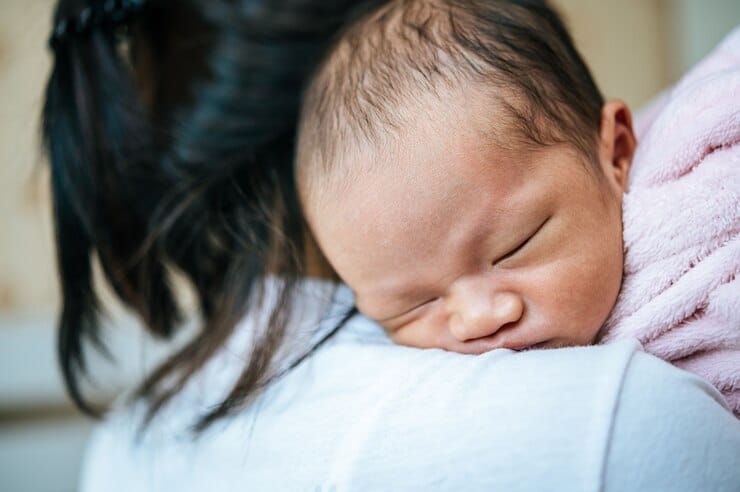As parents, it’s our job to ensure our babies get the best possible sleep – including creating a healthy sleep schedule. However, there’s no one “right way” to have your baby sleep; following these six guidelines should help you get on track.
Managing their nap schedule is also important – a good rule of thumb is that babies should nap for at least 30 minutes on average during the day.
Thanks for reading!
1. Your baby needs sleep!
Babies need at least 12 hours of sleep per day, but the amount they need can vary depending on each baby’s needs. For example, some babies may only need 7-8 hours of sleep a day, while others may require ten or even 11 hours of shut-eye.
The best way to help your baby get the sleep they need is to have them spend at least three nights a week sleeping in multiple times throughout the night. This will allow their brains and bodies to adjust accordingly and ensure they get enough restful sleep.
There are many things you can do to help your baby get better and more restful sleep, such as establishing healthy bedtime rituals, making sure their room is dark and quiet, avoiding noisy activities near their crib or bassinet during nap time, keeping an eye on daytime napping habits, and limiting screen exposure before bedtime. By following these guidelines, you’ll ensure your little one gets the peaceful slumber they deserve!
2. Every stage of development has its sleep requirements.
Every stage of baby development has its sleep requirements. These stages are as follows:
1. Infant Sleep (0-6 months old)
2. Early Childhood (7-12 months old)
3. Middle Childhood (1-5 years old)
4. Late Childhood/Adolescence (6-13 years old)
5. Puberty and Young Adulthood (>14 years old).
3. Babies should be sleeping from about 12-18 hours per day.
Healthy babies need a lot of sleep. A newborn’s brain is still developing; they need between 12-18 hours of sleep daily to grow and develop properly. To get the best baby sleep, ensure their environment is safe, comfortable, and free from unnecessary noise or heat.
A baby should not be sleeping in sweat or urine; this can lead to respiratory problems. Finally, infants should not be put on a strict bedtime routine; parents should instead offer a range of options (including letting them stay up later when there are fewer demands for sleep) to find what works best for each baby.
4. There’s no “right” way to have your baby sleep; it’s up to you and your partner to find the schedule that works for both of you.
It’s common knowledge that babies sleep in different cycles, and sticking to their sleep schedule is important. However, many parents oversleep their babies or get them too tired during the day. If you want your baby to get a good night’s sleep, there are several guidelines you should follow:
1. Make sure you keep track of your baby’s bedtime routine. This will help you avoid entering their room at an unplanned time and disturbing their rest. It also helps establish a regular rhythm for both of you
2. Avoid over-treating your baby if they wake up during the night; try giving them reassuring words instead of food or drink (especially crucial if breastfeeding). Just because your little one woke up from sleeping doesn’t mean they need caffeine or sweets immediately!
3. Be patient – most babies take around 12 hours to adjust to their new sleeping pattern; don’t expect overnight miracles! Stick with gradual changes and be prepared for some crying from both of you as your child adjusts
4. Finally, remember that there is no “right way” to have a baby’s sleep—each family is unique, and each infant goes through different phases simultaneously
5. Managing a baby’s nap schedule is key to getting them the rest they need – a good rule of thumb is that babies should nap for at least 30 minutes on average during the day.
A regular nap can help your baby to restore energy and improve their mood. A good sleep schedule for a baby includes at least six hours of uninterrupted sleep, but naps are especially important in early childhood when their brains are still developing.
If your baby is not getting enough sleep, they may become restless and irritable. It’s important to keep the room dark and quiet when your baby is asleep so they can get the most rest possible. Here are some guidelines to help you manage your baby’s Nap Schedule:
Nap Timing: Babies vary in how long it takes them to fall asleep after falling asleep from awake; this ranges anywhere from 15 minutes up to an hour or more (but usually falls within 30 minutes).
Try not to force-feed a Baby if they do not seem hungry; allow them time alone in his crib before trying again later. Once Your Baby Is Asleep: You don’t want any noise distractions while Your Baby sleeps- turn off all electronic devices such as phones, tablets, etc…
close all doors between rooms where the baby is sleeping, and maintain consistent nursery temperatures around 68 degrees F through the newborn stage until six months old.
6. It can be challenging, but you can do some simple things to help ensure your baby sleeps well (check out our tips below).
It can be hard to get your baby to sleep soundly. After all, they only sleep for a few hours at a time! But by following these six guidelines, you and your baby will benefit from a restful night’s sleep.
1. Establish a regular bedtime routine that includes relaxing activities such as reading or listening to calming music before bed
2. Avoid caffeine and alcohol late in the day (these substances can keep you awake)
3. Keep the room dark and quiet; expose infants and young children to light no earlier than 6 am
4. Avoid loud noises such as heavy traffic, barking dogs, thunderstorms, or vacuum cleaners around bedtime
5. Don’t overstress about getting your baby asleep quickly – it is better to try two different strategies than resorting completely to just putting them in their crib immediately after feeding or changing clothes
6.. Follow our tips below for help with settling newborns into slumberland
Conclusion
As you can see, your baby’s sleep is vitally important. In this blog post, we discuss the different stages of development and the necessary sleep requirements for each stage.
We also provide tips on how to get your baby sleeping from 12-18 hours per day, as well as advice on managing their nap schedule.
Finally, we give you a guideline for how much sleep your baby should get at night. Have fun optimizing your baby’s sleep routine, resulting in a happy and healthy infant!











